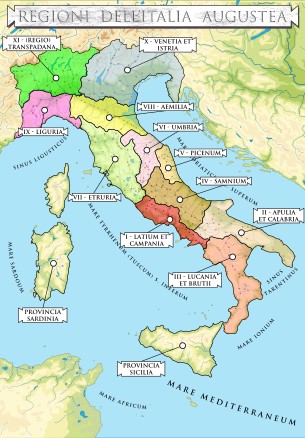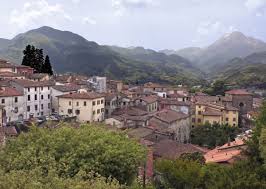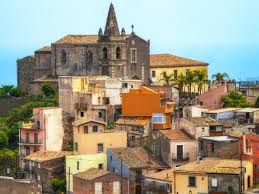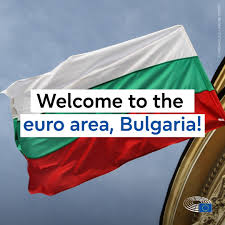Why is Italy called Italy?

Rome: Readers who know their history will be aware that modern day Italy only came into being in the 19th century with the country’s gradual unification (known in Italy as the Risorgimento) between 1848 and 1871, thanks in large part to a series of successful military campaigns led by General Giuseppe Garibaldi.
But the name Italia – referring to different parts of the peninsula at different points in history – has been in use for several thousand years.
In his text ‘On Italy’ the Greek historian Antiochus of Syracuse, writing in around 420 BC, reportedly identified Italia as the southern part of modern day Calabria – the toe of Italy’s boot.
Italy according to the ancient Greeks, corresponding to modern Calabria, scanned from a 19th century book.
Italy according to the ancient Greeks, corresponding to modern Calabria, scanned from a 19th century book.
Most of Antiochus’ words are lost to us today, but the Greek historian Dionysius of Halicarnassus, writing several hundred years later in the early first century AD, quotes parts of Antiochus’ works in his text ‘Roman Antiquities‘.
Here Antiochus recounts the legend that sixteen generations before the Trojan war, the region we now know as Calabria was inhabited by the Enotri or the Oenotrians. The Enotri had a king named Italus, and subsequently changed their name to the Itali.
The town of Catanzaro in Calabria today has a road sign proudly announcing itself as the birthplace of the name Italia.
Over the following centuries, the area known as Italia gradually expanded to include all of the south and central-northern part of the peninsula; the northern cisalpine region under Julius Caesar in the 40’s BC; the northeastern region of Istria (home to modern day Trieste) under Caesar Augustus in 7 AD; and finally Sicily, Sardinia, and Corsica under the Emperor Diocletian in 292 AD.
Multiple alternative theories persist, however, as to the origins of the name Italia. The most popular is that it’s the Latin formulation of the Oscan word Víteliú, meaning ‘land of the young cattle’. The word was translated as Italói in ancient Greek and Italia in Latin.
Oscan was spoken by a number of tribes, including the Samnites, the Aurunci, and the Sidicini. It had become a dead language by about 100 AD, but in first century BC these tribes, in competition with the Romans, were minting coins with Víteliú stamped on them.
Another idea is that Italia comes from the Greek Aethalia or Aithalìa, meaning “land of thick smoke”, in reference to its numerous volcanoes.
Finally, Dionysius of Halicarnassus himself, in the same text in which he mentions Antiochus’ account of Italus, offers an alternative origin story.
Dionysius cites another 5th century BC historian Hellanicus of Lesbos, who brings Hercules into the mix. According to Hellanicus, for Hercules’s tenth labour he was ordered to raid the cattle of the monster Geryon and bring them to King Eurystheus.
As Hercules was driving the herd back to Greece on his return from his successful mission, one of the calves swam away and escaped to Sicily. Hercules wandered all over the land asking its inhabitants – who spoke little Greek – if they had seen the animal, and in responding, they used their word for calf, vitilus.
Hercules gave the name Vitulia – land of the calf – to the land he had wandered in search of the creature.
Dionysius notes that he considers that Antiochus’ explanation ‘perhaps is more probable’ than Hellanicus, but concludes the important thing is that either way, Italy got its name ‘in Hercules’ time, or a little earlier’, and it stuck.
And that concludes our range of possible explanations as to how the country got its name.
Why is Italy called Italy? Like Dionysius two thousand years ago, it looks like it’s up to you to pick your favourite theory.





